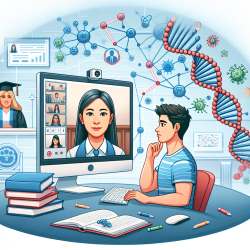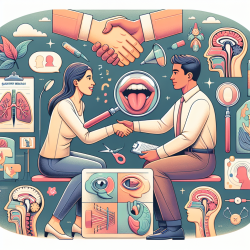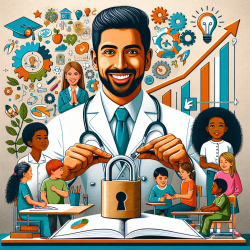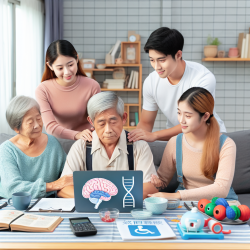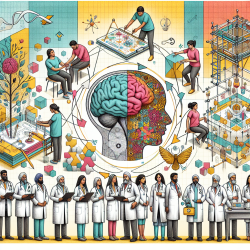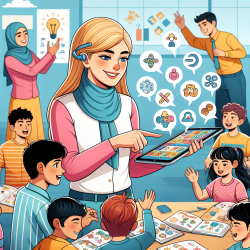Understanding the Social Genome: Implications for Online Therapy
The recent study titled "The social genome of friends and schoolmates in the National Longitudinal Study of Adolescent to Adult Health" offers groundbreaking insights into the genetic similarities among friends and schoolmates and how these similarities influence educational and health outcomes. As practitioners in the field of online therapy, understanding these findings can enhance our approach to therapy, especially when working with adolescents.
Key Findings of the Study
The study reveals that friends and schoolmates are more genetically similar to each other than randomly selected individuals. This similarity is observed across the genome and is particularly pronounced in areas linked to educational attainment and body mass index (BMI). The phenomenon, termed "social-genetic correlation," suggests that the genetics of an individual's social circle can significantly influence their educational outcomes, independent of their own genetic makeup.
Implications for Online Therapy Practitioners
For online therapy practitioners, these findings highlight the importance of considering the social-genetic context of our clients. Here are some practical steps to integrate these insights into your practice:
- Recognize Social Influences: Acknowledge the role of a client's social environment, including friends and schoolmates, in shaping their behaviors and outcomes. This understanding can inform personalized therapy plans that consider social-genetic influences.
- Encourage Positive Social Networks: Facilitate discussions with clients about their social circles and encourage the formation of supportive and positive networks. Highlight the potential impact of these networks on their educational and health outcomes.
- Incorporate Family and Peer Dynamics: When appropriate, involve family members or peers in therapy sessions to address social-genetic effects and promote a supportive environment for change.
- Promote Further Research: Encourage clients, especially those in educational settings, to explore further research on sociogenomics to understand the broader implications of their social interactions.
Encouraging Further Research
While the study provides valuable insights, it also opens avenues for further research. Practitioners should encourage educational institutions to explore the genetic makeup of social environments and its impact on student outcomes. This can lead to more informed strategies in both educational and therapeutic settings.
To read the original research paper, please follow this link: The social genome of friends and schoolmates in the National Longitudinal Study of Adolescent to Adult Health.
